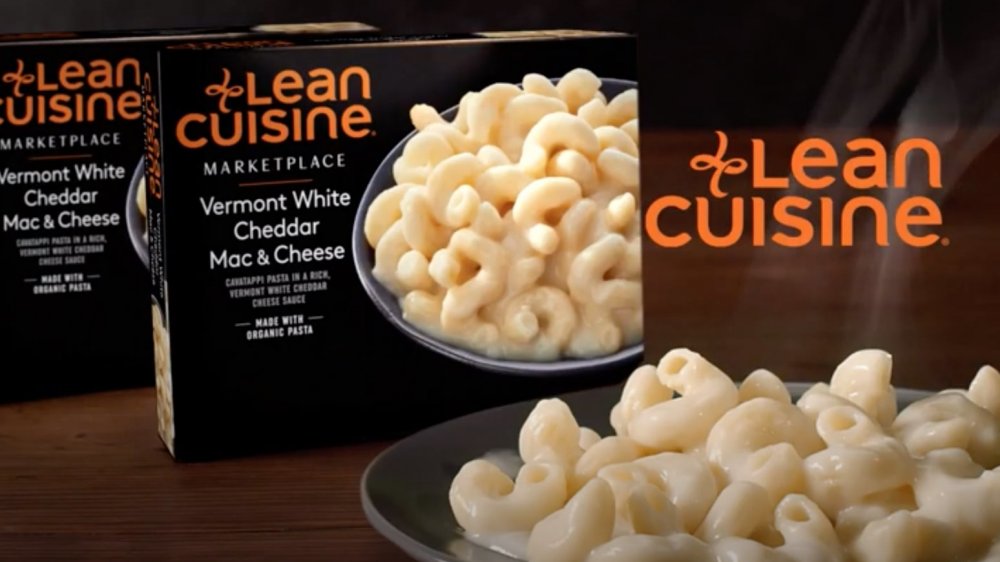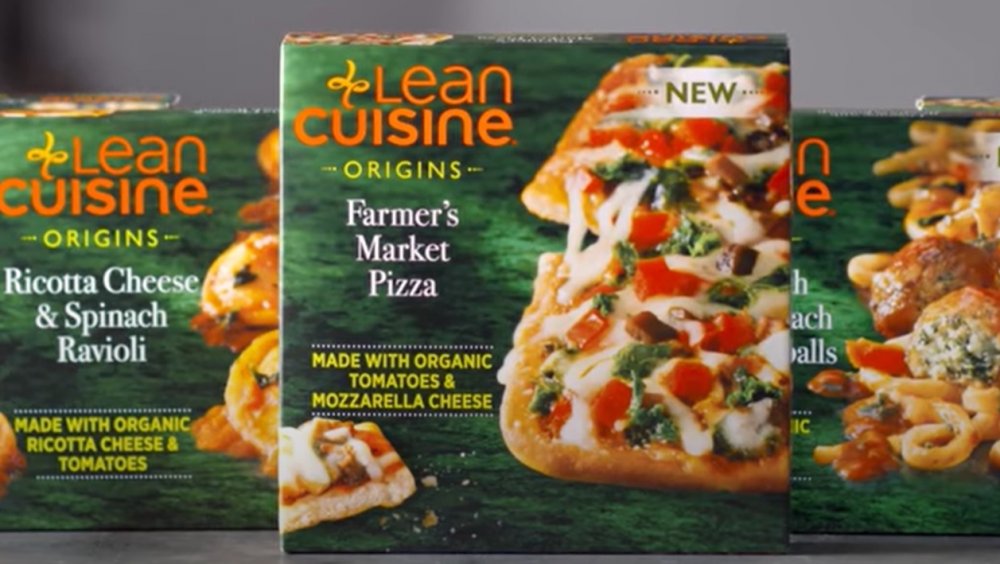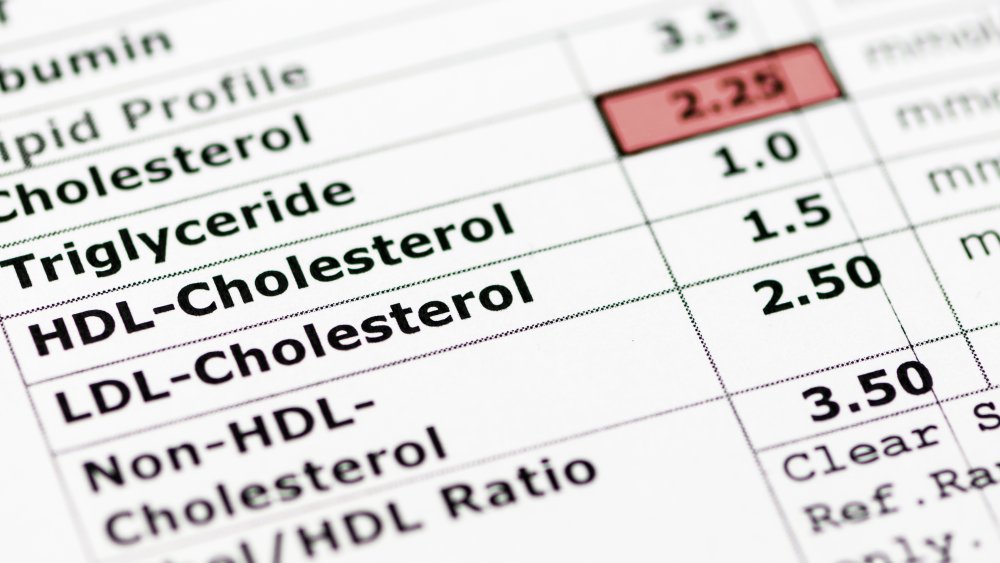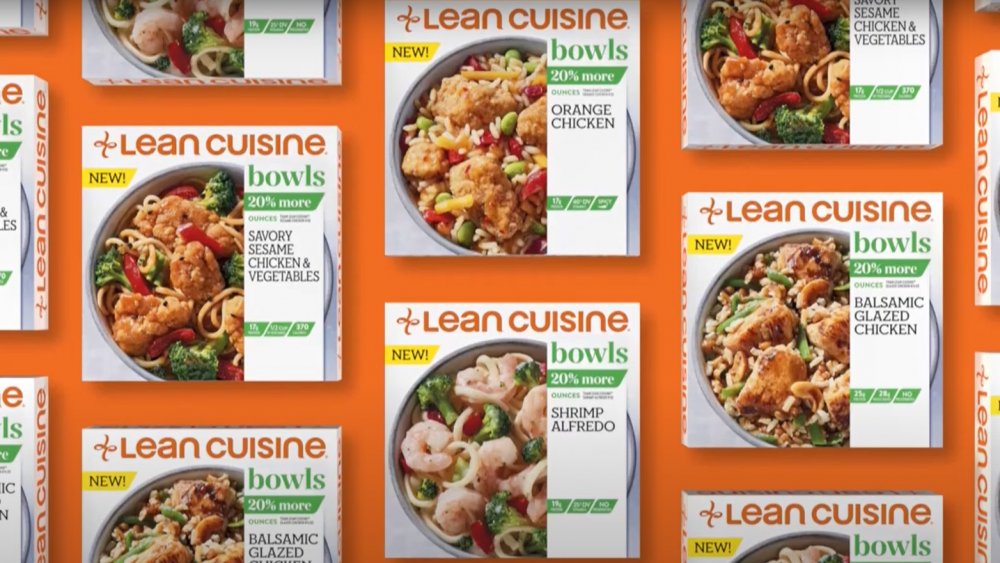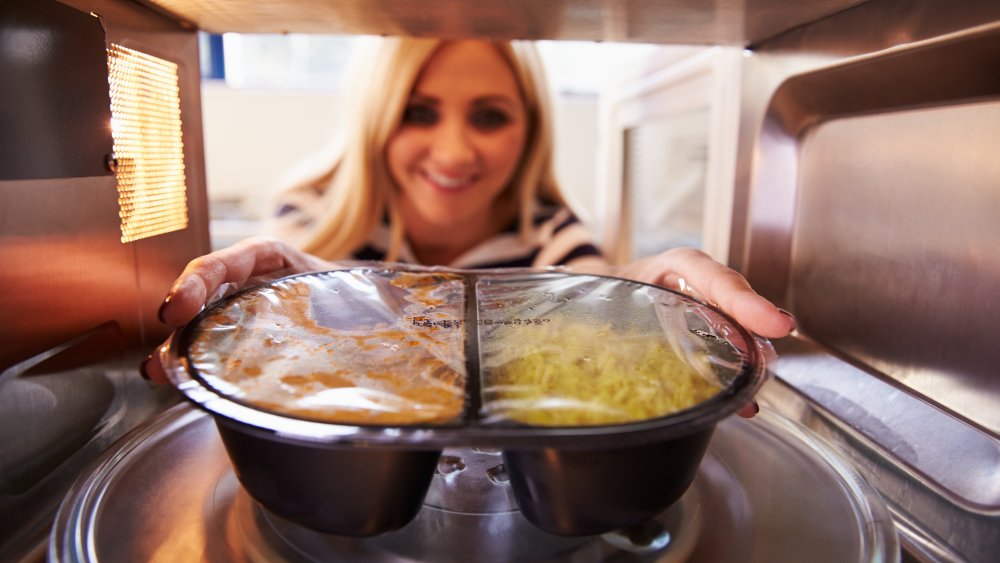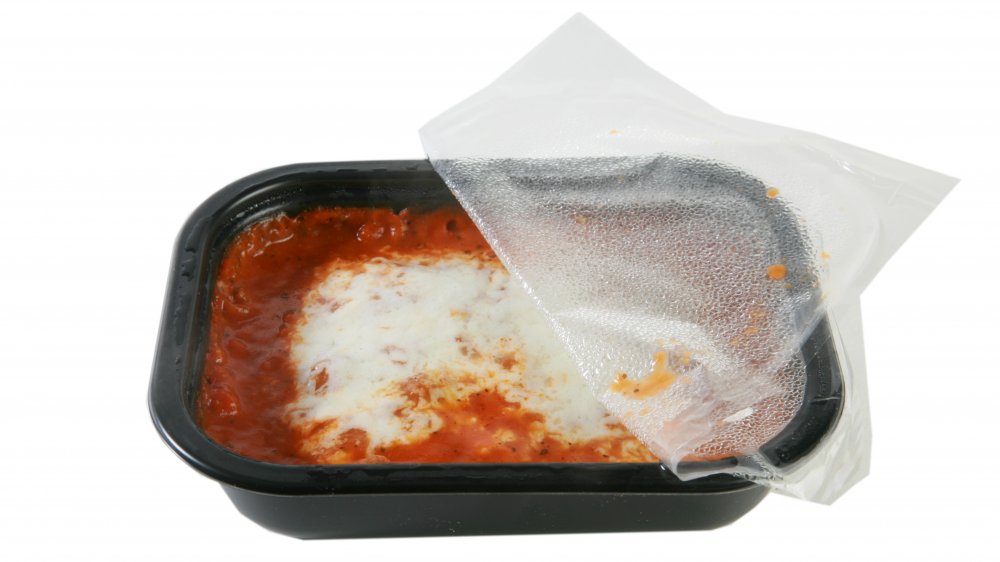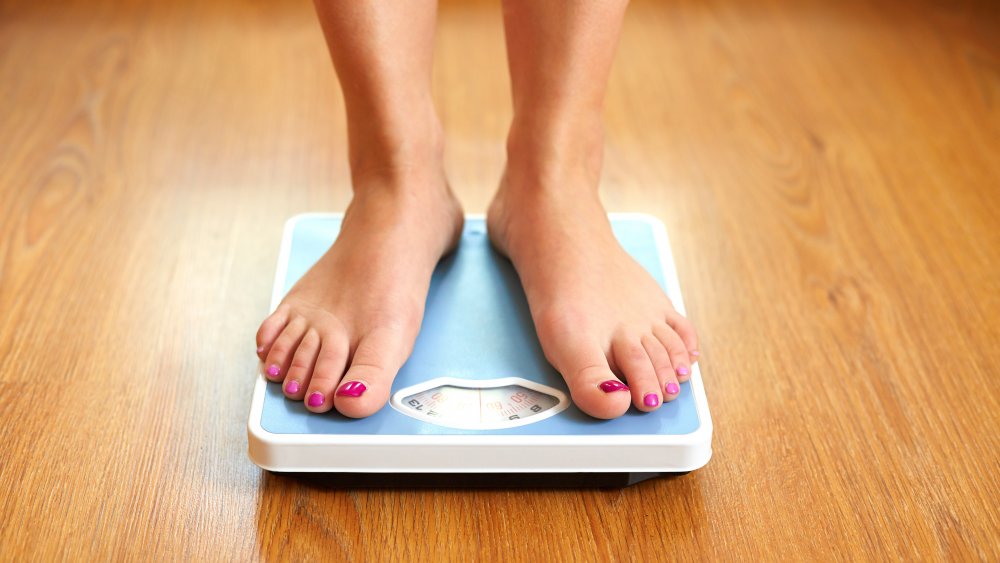When You Eat Lean Cuisine Meals Every Day, This Is What Happens To Your Body
Lean Cuisine meals are a popular frozen dinner option in grocery stores across the country. Since 1981, when Stouffer's launched the brand to appeal to health-conscious consumers, Lean Cuisine has grown into a pre-packaged food juggernaut with a plethora of dishes and snacks. Whether it's comfort food, low-carb lunches, or basic meat and veggie dishes, Lean Cuisine has a dining option for just about everyone.
While not everyone's idea of a delicious meal is frozen food that's been microwaved, some folks find Lean Cuisine meals to be a suitable option for their lifestyle needs. While there are plenty of false facts you believe about dieting, Lean Cuisines seem to be pretty great options. For one, they're convenient, as they heat up in the microwave in a matter of minutes. Additionally, the frozen meals are fairly inexpensive and can be found in any grocery store with a frozen food section. And, hey — some people may even call them delicious!
Are you someone who would rather eat a Lean Cuisine meal than cook your own dinner? If so, you're definitely going to want to know what happens to your body when you eat Lean Cuisines every day.
You could lose weight if you eat Lean Cuisine meals every day
Lean Cuisine literally has the word "lean" in its name, but will the frozen meals actually help you get (and stay) lean? While there are some things everyone gets wrong about weight loss, according to registered dietitian Amanda A. Kostro Miller, turning to Lean Cuisines to regulate your eating patterns does have a bit of an advantage. "One good thing about Lean Cuisines is that they are 'regular' meals that are lower in calories," she told The List. That means you won't miss out on your favorite foods, even if they're considered comfort foods.
The good news is that being diligent about your approach to eating Lean Cuisine meals every day could get the results you want. Kostro Miller explained, "If you replace one to two of your meals with these lower calorie meals, you may see weight loss — as long as you're not snacking or overcompensating at another meal."
This was certainly the case in a study published in the journal Obesity, in which participants eating Lean Cuisines lost more weight than participants who didn't eat the frozen meals.
If you have diabetes, eating Lean Cuisine every day may help you manage it
Eating Lean Cuisines every day could help diabetics manage their blood sugar, according to some experts.
As noted by the American Diabetes Association, approximately 34.2 million Americans have diabetes, which is a little more than 10 percent of the entire population. Additionally, nearly 90 million American adults have pre-diabetes, which puts them at risk of eventually developing type 2 diabetes. Those are some pretty startling numbers!
If you're included in either one of those statistics, eating Lean Cuisine meals every day might be able to help you either manage or even ward off diabetes. That's because these frozen dinners can help you lose weight, as noted in a study published in the journal Obesity. And losing weight, even if it's just five to ten percent of your overall mass can help in a variety of ways — such as improving your insulin resistance, improving your A1C results, lowering your blood pressure, reducing your risk of developing sleep apnea (or improving it if you already have it), protecting your arteries, and boost your energy level (via Everyday Health). In other words, it's definitely worth a try.
Eating Lean Cuisine every day may help you lower your cholesterol levels
Eating Lean Cuisines everyday will definitely save you some time in the kitchen; however, these frozen meals could also help save your life.
If you had to guess what the number one cause of death is in the United States, what would you pick? If you went with cardiovascular disease, you'd be correct. According to the CDC, cardiovascular disease claims nearly 650,000 lives across the country every year — which is more than the lives claimed by cancer, stroke, respiratory diseases, or accidents, to name a few other causes.
One of the major risk factors for heart disease is having high cholesterol levels, as noted by Healthline – so it's important to keep your LDL cholesterol (also known as "bad" cholesterol) in check. One possible way that you could do that is by eating Lean Cuisine meals every day, as they can help you shed unwanted pounds, according to in a study published in the journal Obesity. And since losing weight can help you lower the amount of bad cholesterol in your arteries, losing those pesky extra pounds could seriously decrease your risk of heart attack and stroke.
Eating Lean Cuisine meals every day can change your palate
Eating Lean Cuisines every day could actually make your body crave the less-healthy versions of these frozen dinners.
One of the advantages of eating Lean Cuisine meals every day is that you can have your favorite foods — like lasagna, mac and cheese, and mashed potatoes, for example — without all of the fat and calories that come with the real thing, says weight management specialist Malia Frey. "Comfort foods like these are often considered highly palatable," she penned in an article in VeryWell Fit. Frey continued, explaining, "They generally contain higher amounts of carbohydrates and salt (and fewer nutrients such as fiber)." No wonder they taste so good!
But eating your favorite comfort foods every day — albeit healthier versions of them — can have a negative impact on your palate. As Frey explained, "When you transition off your diet you may still want [those meals]." Of course, that can be especially problematic if you give in and chow down on delivery pizza, which isn't as health-conscious as its Lean Cuisine counterpart.
If you eat Lean Cuisine meals every day, your macronutrient balance may suffer
All Lean Cuisine meals must have a maximum of 600 milligrams of sodium, no more than 10 grams of fat (and 4.5 grams of saturated fat), and less than 95 milligrams of cholesterol per meal, according to Mic. However, that doesn't necessarily ensure Lean Cuisine meals are all nutritionally balanced, so eating them every day does have some drawbacks.
Certified fitness and nutrition coach Madalynne Carattini told The List, "Don't be surprised if you feel hungry because of not only how small the portions are, but how little balance of macronutrients there are in the meal." She continued, explaining, "When creating a meal, you want to have a 2:1:0.5 ratio of carbs-to-protein-to-fat, and you should have at least 20 grams of protein per meal." Unfortunately, not all Lean Cuisine meals can fulfill those needs.
That's not lost on Nestlé, the company that owns the Lean Cuisine brand. Fortunately, the company added a Balance Your Plate tool to their website, so you can find out what nutritional foods pair best with your frozen meal.
Your health may not be optimal if you eat Lean Cuisine meals every day
Lean Cuisine meals generally taste pretty good, which is why some folks are perfectly happy eating them every day. However, if you're powering yourself solely on their frozen offerings, you might be selling yourself short, as noted by weight management specialist Malia Frey.
"Many frozen diet meals include processed meats and side dishes," Frey wrote in an article in VeryWell Fit. She continued, explaining, "Most nutrition experts agree that heavily processed foods don't support optimal health." And what's more important than being as healthy as you can?
Unsurprisingly, the folks who are experts in healthy diets advocate for a different approach to eating, says Frey. "They recommend that you get your calories from whole foods like fruits and vegetables and lean sources of protein with fewer added ingredients," she continued. That's not to say you can't supplement your Lean Cuisine-based diet with fresh fruits and vegetables, which would definitely help. But that doesn't solve the issue with processed foods overall.
If you eat Lean Cuisine meals every day, you might not get enough fiber
Lean Cuisines may help you lose weight — but if you eat them every day, you may also lose out on getting the fiber your body needs.
Fiber is a super important part of your diet, as it helps you to regulate a number of bodily processes, according to the Mayo Clinic. However, an alarming amount of folks aren't making a concerted effort to get enough of it. "97 percent of Americans fail to consume the recommended minimum amount of fiber daily," licensed nutritionist dietitian Tatiana V. Larionova told The List.
Unfortunately, if you eat Lean Cuisine meals every day, you might not be getting enough of this essential roughage. Larinova explained to The List, "Most Lean Cuisine meals are rather low in fiber, with only one entrée — Coconut Chickpea Curry — boasting 20 grams, while others provide anywhere between one to seven grams of fiber per meal." Given that women under the age of 50 need at least 25 grams of fiber per day (via WebMD), you can see how the math falls on the side of a fiber shortfall.
Eating Lean Cuisine meals every day can raise your blood pressure
Lean Cuisine meals may not taste like you're eating too much salt, but consuming them every day can skyrocket your body's sodium intake, says registered dietitian Megan Wong.
"Your blood pressure may increase if you choose higher sodium dishes," Wong shared with The List. She continued, saying, "Many of the dishes have around 700 mg of sodium, which is around 30 percent of the daily recommended intake." She added that as a general guide, a meal with five percent or less sodium is considered "low-sodium," and a meal with 20 percent or more is considered "high-sodium."
According to the FDA, the maximum recommended intake of sodium is 2,300 milligrams per day for healthy adults. Unfortunately, the average American eats 3,400 milligrams of sodium every day, thanks to our taste for salty foods like pizza, sandwiches, and cheeses. Fortunately, Lean Cuisine does offer options that are lower in sodium than others — so if you're concerned about your blood pressure, low-sodium Lean Cuisines are definitely a better bet. After all, anything packed with sodium is definitely a food you should avoid if you want a long life.
You might gain weight if you eat Lean Cuisine meals every day
Lean Cuisine might have "lean" it its name, but it's far from a magical weight loss solution. In fact, eating only Lean Cuisines could be one of the reasons you're not losing any weight.
Lean Cuisine seems to make weight loss possible thanks to the reduced calories per serving and the small portion sizes. However, if you don't have the proper discipline, you might see the scale tip in the other direction. As certified personal trainer Sergio Pedemonte told The List, "You may gain weight since the lower calorie content may not be satiating, prompting you to consume additional food." He continued, explaining, "People in general find frozen foods not filling enough."
That's not just a once in a while occurrence either, says Pedemonte. "[People] almost always eat something else on the side, drastically adding to the calorie count," he continued. Of course, that's not necessarily a bad thing if you opt for sides like fresh vegetables or fruit — or healthy snacks that are anything but boring. Still, it's important to be aware of what you're putting in your body.
